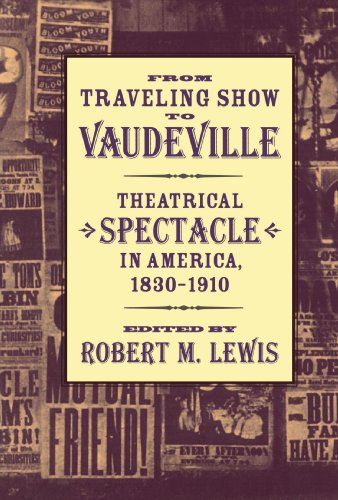

Most ebook files are in PDF format, so you can easily read them using various software such as Foxit Reader or directly on the Google Chrome browser.
Some ebook files are released by publishers in other formats such as .awz, .mobi, .epub, .fb2, etc. You may need to install specific software to read these formats on mobile/PC, such as Calibre.
Please read the tutorial at this link: https://ebookbell.com/faq
We offer FREE conversion to the popular formats you request; however, this may take some time. Therefore, right after payment, please email us, and we will try to provide the service as quickly as possible.
For some exceptional file formats or broken links (if any), please refrain from opening any disputes. Instead, email us first, and we will try to assist within a maximum of 6 hours.
EbookBell Team

5.0
38 reviewsBefore phonographs and moving pictures, live performances dominated American popular entertainment. Carnivals, circuses, dioramas, magicians, mechanical marvels, musicians, and theatrical troupes―all visited rural fairgrounds, small-town opera houses, and big-city palaces around the country, giving millions of people an escape from their everyday lives for a dime or a quarter. In From Traveling Show to Vaudeville, Robert M. Lewis has assembled a remarkable collection of nineteenth- and early twentieth-century primary sources that document America's age of theatrical spectacle. In eight parts, Lewis explores, in turn, dime museums, minstrelsy, circuses, melodramas, burlesque shows, Wild West shows, amusement parks, and vaudeville.
Included in this compendium are biographies, programs, ephemera produced by theatrical entrepreneurs to lure audiences to their shows, photographs, scripts, and song lyrics as well as newspaper accounts, reviews, and interviews with such figures as P. T. Barnum and Buffalo Bill Cody. Lewis also gives us reminiscences about and reactions to various shows by members of audiences, including such prominent writers as Mark Twain, William Dean Howells, Nathaniel Hawthorne, Carl Sandburg, Walt Whitman, Louisa May Alcott, Charles Dickens, O. Henry, and Maxim Gorky. Each section also includes a concise introduction that places the genre of spectacle into its historical and cultural context and suggests major interpretive themes. The book closes with a bibliographic essay that identifies relevant scholarly works.
Many of the pieces collected here have not been published since their first appearance, making From Traveling Show to Vaudeville an indispensable resource for historians of popular culture, theater, and nineteenth-century American society.